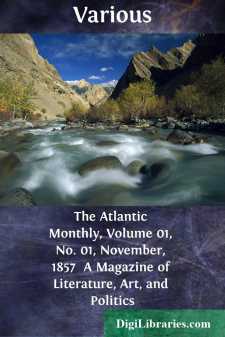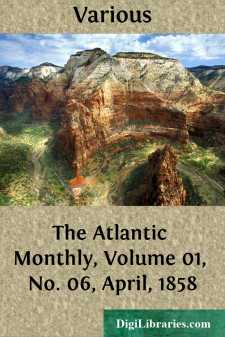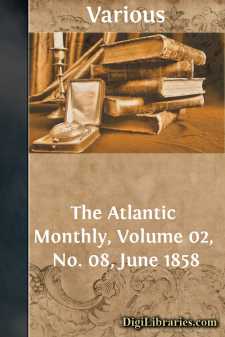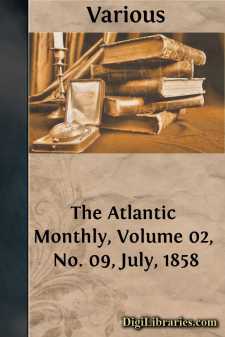Categories
- Antiques & Collectibles 13
- Architecture 36
- Art 48
- Bibles 22
- Biography & Autobiography 813
- Body, Mind & Spirit 142
- Business & Economics 28
- Children's Books 14
- Children's Fiction 11
- Computers 4
- Cooking 94
- Crafts & Hobbies 4
- Drama 346
- Education 46
- Family & Relationships 57
- Fiction 11829
- Games 19
- Gardening 17
- Health & Fitness 34
- History 1377
- House & Home 1
- Humor 147
- Juvenile Fiction 1873
- Juvenile Nonfiction 202
- Language Arts & Disciplines 88
- Law 16
- Literary Collections 686
- Literary Criticism 179
- Mathematics 13
- Medical 41
- Music 40
- Nature 179
- Non-Classifiable 1768
- Performing Arts 7
- Periodicals 1453
- Philosophy 64
- Photography 2
- Poetry 896
- Political Science 203
- Psychology 42
- Reference 154
- Religion 513
- Science 126
- Self-Help 84
- Social Science 81
- Sports & Recreation 34
- Study Aids 3
- Technology & Engineering 59
- Transportation 23
- Travel 463
- True Crime 29
Sort by:
by:
Various
CHAPTER XXII. MR. MADGIN AT THE HELM. Mr. Madgin's house stood somewhat back from the main street of Eastbury. It was an old-fashioned house, of modest exterior, and had an air of being elbowed into the background by the smarter and more modern domiciles on each side of it. Its steep, overhanging roof and porched doorway gave it a sleepy, reposeful look, as though it were watching the on-goings of...
more...
by:
Various
DOUGLAS JERROLD. My personal acquaintance with Douglas Jerrold began in the spring of 1851. I had always had a keen relish for his wit and fancy; I felt a peculiar interest in a man who, like myself, had started in life in the Navy; and one of the things poor Douglas prided himself on was his readiness to know and recognize young fellows fighting in his own profession. I shall not soon forget the...
more...
by:
Various
VI. THE CARMINE. The only part of this ancient church which escaped destruction by fire in 1771 was, most fortunately, the famous Brancacci chapel. Here are the frescos by Masolino da Panicale, who died in the early part of the fifteenth century,вÐâthe Preaching of Saint Peter, and the Healing of the Sick. His scholar, Masaccio, (1402-1443,) continued the series, the completion of which was...
more...
by:
Various
NOTES ON DOMESTIC ARCHITECTURE. If building many houses could teach us to build them well, surely we ought to excel in this matter. Never was there such a house-building people. In other countries the laws interfere,—or customs, traditions, and circumstances as strong as laws; either capital is wanting, or the possession of land, or there are already houses enough. If a man inherit a house, he is not...
more...
by:
Various
THE GREAT FAILURE. The crucial fact, in this epoch of commercial catastrophes, is not the stoppage of Smith, Jones, and Robinson,—nor the suspension of specie payments by a greater or less number of banks,—but the paralysis of the trade of the civilized globe. We have had presented to us, within the last quarter, the remarkable, though by no means novel, spectacle of a sudden overthrow of...
more...
by:
Various
THE CATACOMBS OF ROME. ————parti elette Di Roma, che son state cimitero Alla milizia che Pietro seguette. PARADISO, c. ix. "Roma Sotterranea,"—the underground Rome of the dead,—the buried city of graves. Sacred is the dust of its narrow streets. Blessed were those who, having died for their faith, were laid to rest in its chambers. In pace is the epitaph that marks the places where...
more...
by:
Various
THE HUNDRED DAYS. PERSONAL REMINISCENCES. That period of history between the 20th of March and the 28th of June, 1815, being the interregnum in the reign of Louis the Eighteenth, caused by the arrival of Napoleon from Elba and his assumption of the government of France, is known as "The Hundred Days." It is as interesting as it was eventful, and has been duly chronicled wherever facts have been...
more...
by:
Various
AMERICAN ANTIQUITY. The results of the past ten or fifteen years in historical investigation are exceedingly mortifying to any one who has been proud to call himself a student of History. We had thought, perhaps, that we knew something of the origin of human events and the gradual development from the past into the world of to-day. We had read Herodotus, and Gibbon, and Gillies, and done manful duty...
more...
by:
Various
CHESUNCOOK. At 5 P.M., September 13th, 185-, I left Boston in the steamer for Bangor by the outside course. It was a warm and still night,—warmer, probably, on the water than on the land,—and the sea was as smooth as a small lake in summer, merely rippled. The passengers went singing on the deck, as in a parlor, till ten o'clock. We passed a vessel on her beam-ends on a rock just outside the...
more...
by:
Various
V. Rome is preeminently the city of monuments and inscriptions, and the lapidary style is the one most familiar to her. The Republic, the Empire, the Papacy, the Heathens, and the Christians have written their record upon marble. But gravestones are proverbially dull reading, and inscriptions are often as cold as the stone upon which they are engraved. The long gallery of the Vatican, through which one...
more...











